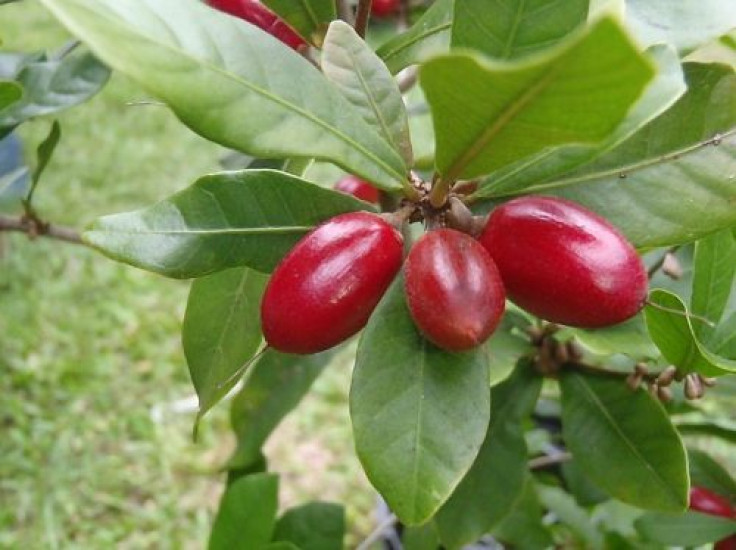Miraculin: Miracle Fruit That Turns Sour Tastes Sweet (VIDEO)

Researchers have discovered the mechanism by which a protein named Miraculin in West African Berries changes the ways food tastes from sour to sweet.
Keiko Abe of the University of Tokyo, one of the authors of a study published on Monday in the journal Proceedings of the National Academy of Sciences, told Discovery News that "[B]eer tastes like sweet juice. Lemon tastes like sweet orange" after tasting the protein.
To figure out its effects, a team of scientists went sought to discover the protein’s then unknown mechanism.
"The key ingredient in the fruit, a protein known as miraculin, binds strongly to the sweet taste receptors on our tongues...but it does not activate the receptors at neutral pH. When acid is introduced, the miraculin protein changes shape in such a way that it turns on sweet receptors it is bound to,” according to Discovery News.
In other words, it changes the way things taste, inverting sweet receptors to work on sour food.
The result: consume a few of the berries – formally known as synsepalum dulcificum - and Tabasco sauce soon tastes like "hot doughnut glaze" when consumed directly afterwards, one taster at a party told the New York Times in 2008.
The chemical could make foods taste sweet without the addition of calories. Such a 'sweetener' would require manufacturing the chemical from the source. Purified miraculin extract is currently under testing in Japan for a way to produce it.
Abe says the berries are being bred so that the miraculin can be extracted and sold in Japan, according to Discovery News.
Story: Simon Cowell's Diet: Fruit Smoothies and Vitamin Drips (VIDEO)
Magic Berries from davidxcarroll on Vimeo.



























